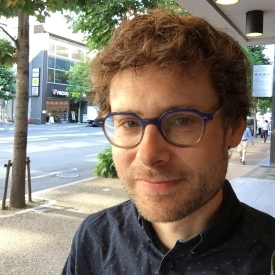Twice in June I presented research findings on “Gamers with a Civic Life” which considered thousands of players of the popular game League of Legends, and asked about their ordinary civic lives.
Here is a video of my Games for Change presentation (15 minutes; see also the conference’s panel description):

This research was also presented at the Games Learning and Society conference (see blurb) in Madison. Here’s the working title and blurb:
Civic Beyond Play: Ties to Public Life for Small-Group Gamers (June 2012 draft)
by Benjamin Stokes and Dmitri Williams, USC Annenberg School for Communication and Journalism
Commercial games are rarely studied for their links to traditional civic engagement. This study examined thousands of players of a popular team-based game, and investigated ties to offline volunteering and protest. Contrary to stereotypes, this study reveals civic participation rates of gamers comparable to a normative stalwart: the typical American parent. Small-group gamers had unusually high rates of “peaceful protest, march, or demonstration” – more than twice the lifetime rate of American parents. Several predictive models for protest were compared, using game-based indicators to confirm these civic models across the game boundary. Protest was best predicted by theories of political engagement (such as being liberal and awareness of key advocacy groups), rather than socio-demographics (such as income and gender). Several game-related behaviors were especially useful in the model, including whether a player had recruited others to join the game; conversely, high hours spent gaming did not undermine the likelihood of protest.
A rough draft of our short article is available (minus the comparison between factors for protest v. volunteering). Please do not cite without permission; a polished version should be forthcoming later this year if we’re lucky with the journal review boards.
